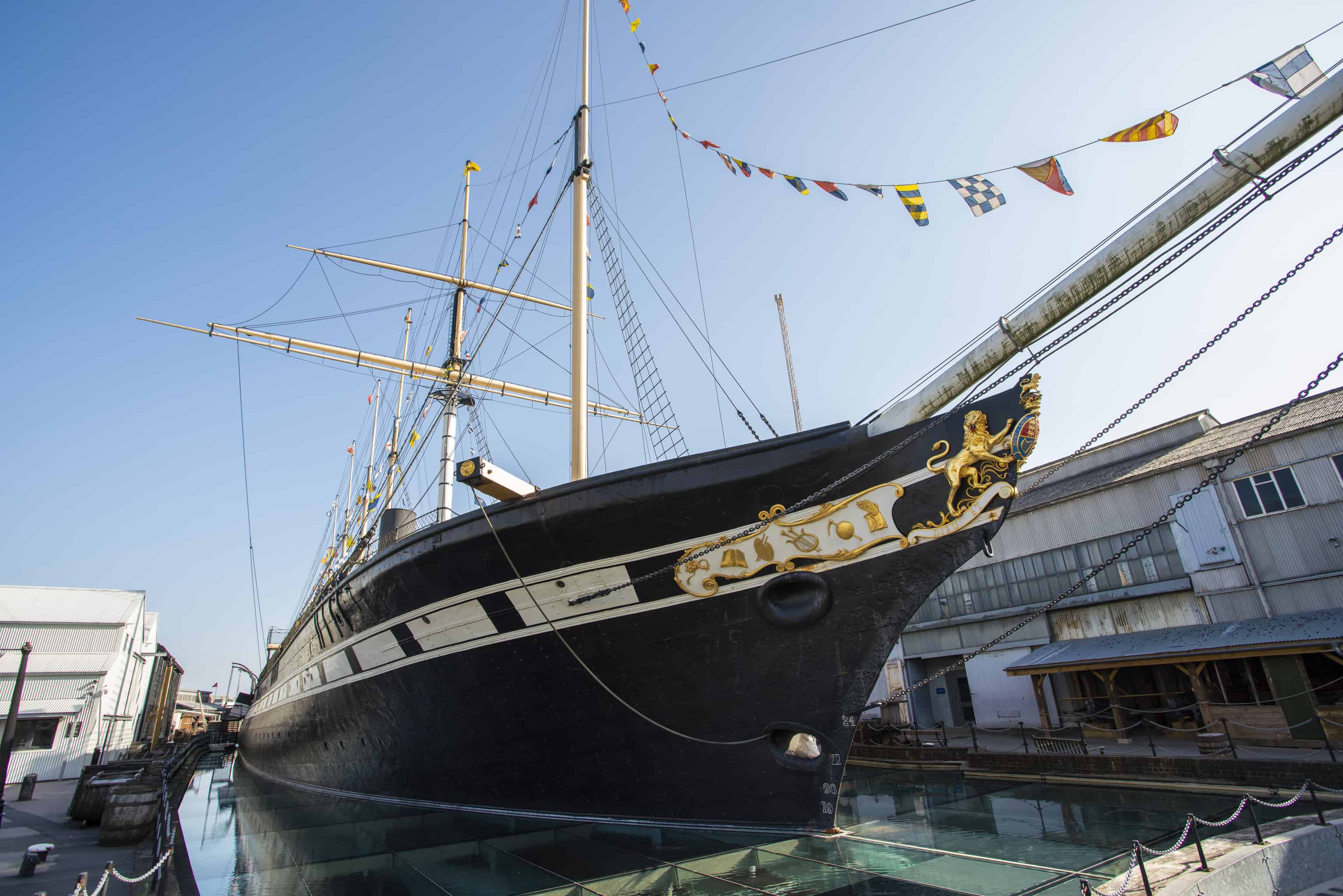Quarantine is not a Victorian invention – it dates back at least to the late 14th century – but the boom in the number of people travelling at sea during the 19th century drove fears around the spread of disease. When outbreaks of infectious disease did occur on SS Great Britain, sick passengers were quarantined and usually this was effective. Unfortunately, on one voyage in 1854, this would not be the case.
During the ship’s third trip to Australia, smallpox broke out on board just three weeks away from Melbourne. One passenger’s diary noted that “One of the four sufferers, a sailor, died on 13th August”. The unfortunate man was immediately buried at sea, leading some to suggest his body was put overboard that night to keep his death a secret. As the ship approached port, Captain Gray did his duty and hoisted the dreaded yellow flag which signalled illness on board when flown with another flag . Confusingly, that same yellow flag flown on its own would signal no disease! The ship was inspected and, despite an officer commenting that “I have seldom seen a healthier lot of passengers”, the authorities forced the ship back to the Sanitary Station, 50km from Melbourne’s harbour, where she was to remain in quarantine for the next three weeks.
Given recent events I can really empathise with the passengers. They had to cope with the worry of an infectious disease circulating amongst them, and there was uncertainty about if, when and how government measures would be enforced. Their anxious and frustrated reactions were similar to those many of us are experiencing during the Covid-19 outbreak. “We are all a little afraid” wrote second-class passenger Margaret Brown; and William Bray, travelling in third class, railed that “this is a most dreadful affair – here we are numbering some six or seven hundred souls all healthy… obliged to submit to this awful incarceration.”
During the quarantine itself the passengers’ diaries suggest they were preoccupied with many of the same concerns we have today. Especially what there was and wasn’t to eat. William Bray even describes pickling limpets for breakfast to complement the meagre rations! Boredom was an issue too, with little more to do than stroll around the grounds of the quarantine station. However, what many found hardest was the inability to communicate with families – they weren’t even allowed to send letters home.
Once quarantine had been imposed, rigorous efforts were made to clean the ship. After this and the vaccination of all on board against smallpox, there were no further reported cases. On the 8 September 1854, SS Great Britain was finally cleared to make port in Melbourne and the passengers and crew reached their destination safely at last.
The situation Victorian travellers faced in the 19th century differs from the circumstances we find ourselves in today, but there are some clear parallels to be drawn. Personally, I take comfort from being reminded that whilst current events are unprecedented in our lifetimes, people before us have faced (and indeed overcome) similar challenges whilst experiencing many of the same emotions. It makes me realise that even in self-isolation we’re not alone. Some human experiences are so universal they transcend centuries and can unite us – no matter how much social distancing we must temporarily observe.
Author: Simon Strain, Active Interpretation Manager




